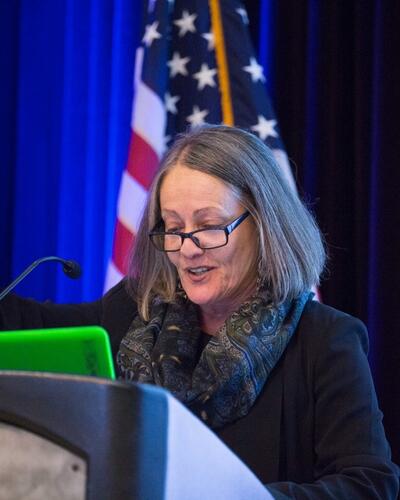Maria Helena Lima received her Ph.D. from the University of Maryland at College Park. She was hired by Geneseo to teach courses on postcolonial literatures, Humanities, writing, and genre theory in 1992. Her research and teaching focus on Black Atlantic Writing. In the spring of 2015, Lima created and taught the first course on "Black Lives Matter" at Geneseo.
Some of her publications include “The Politics of Teaching Black and British” in Black British Writing (Palgrave), “A Written Song: Andrea Levy’s Neo-Slave Narrative” in Entertext, and “The Choice of Opera for a Revisionist History: Joan Anim-Addo’s Imoinda as a Neo-Slave Narrative,” in Transcultural Roots Uprising. With Miriam Alves, she translated and co-edited a bilingual anthology of fiction by Afro-Brazilian women, Women Righting/Mulheres Escrevendo. Lima is currently co-editing (with Joan Anim-Addo) a special issue of Callaloo on contemporary neo-slave narratives.
Lima is the director of the Comparative Literature program at Geneseo.
Her research interests include black British literature and culture, the Caribbean, African diaspora, post-colonial theory, women's studies, and feminist theory.

Curriculum Vitae
Education
M.A., Ph.D., University of Maryland, College Park
M.Ed., Towson State University
B.A., Federal University of Rio Grande do Sul
Classes
-
ENGL 318: Black British Lit & Culture
A study of works by representative Black British writers from the mid-20th century onward in their cultural and social contexts. The course will cover a variety of genres, focusing theoretically on the development of Black British literature, and being framed through these initial questions: Who is English in that nation's imaginary? Who is not? Does Englishness mean WHITE only, as Catherine Hall has so persuasively demonstrated by retelling some of that country's history in relation to its colonies? Black British Literature has historically coincided not only with the questioning of what constitutes a British identity but with critical articulations of the issues of full citizenship and belonging.
-
WRTG 105: Wrtg: The Haitian Diaspora
This course lays the foundation for students to participate insightfully in both written and oral academic conversations. The course focuses on three modes of written and oral communication: communication as an ongoing persuasive dialogue with multiple audiences, communication with a reflective self, and communication with a dynamic evolving text. The course also introduces elements of information literacy and critical thinking needed to develop and evaluate academic conversation. Writing Seminar is typically taken by new students in their first two semesters, often as the introduction to general education, to our library, and to academic support services as sites of collaboration rather than remediation. As many new students' only seminar-style class, Writing Seminar can help lay the foundations of not only academic but also social success.